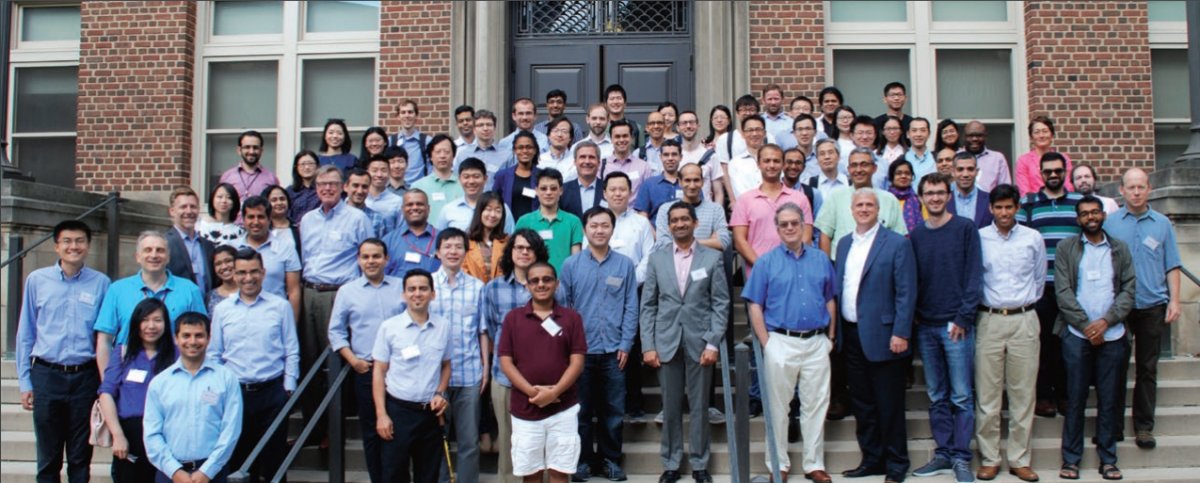Working Together on Emerging Problems

Question: What is the best way for a French public transit system to regain ridership lost to Uber-like services?
Answer: Throw the problem at a team of engineers, mathematicians, and industry experts and see what they come up with.
That’s the basic idea behind the Industrial Mathematics Workshop, organized by ISyE professors Saif Benjaafar, Ankur Mani, and Zizhuo Wang. The event was hosted and partially funded by the National Science Foundation through the university's Institute for Mathematics and its Applications (IMA) and co-sponsored by Microsoft and C.H. Robinson, an international logistics company headquartered in the Twin Cities. “We saw an opportunity to expand ISyE-related research and advance an innovative team-based approach to industry problems,” says Mani.
For three days in July 2017, around 100 industry professionals, academics, and graduate students gathered to kick-start research projects in four clusters: retail, transportation and logistics, sharing economy, and healthcare. Three keynote speakers from industry and academia were followed by a panel discussion for each cluster. Breakout sessions concluded the first two days at which industry participants presented specific problems facing their companies or field of work.
A subset of participants stayed on campus until mid-August to tackle the industry problems posed by industry participants. Following this in-residence period, groups maintained close contact to continue working on their problems throughout the year. “The goal was to develop actionable results that are useful to the companies but that can also be published in a top journal or be a basis for a research proposal to a funding agency," says Mani.
“We saw an opportunity to expand ISyE-related research and advance an innovative team-based approach to industry problems.”
—Ankur Mani, ISyE Professor
Importantly, Mani notes that the research groups were a mix of senior faculty, graduate students, junior faculty, and industry professionals. “This wasn’t just a training exercise, and it wasn’t just an academic exercise,” says Mani. “It was a way to pool resources in academia and industry to tackle complex problems.”
The groups reconvened at the University for a week in August 2018. It was an opportunity for intensive and uninterrupted interaction among team members. “We think that the models the teams developed will be adaptable to similar situations, perhaps even in different industries,” says Mani. As an example, results for the Transdev project are likely to be of relevance to many public transit agencies around the world.
Plans are already underway to prepare for a new edition of the workshop and clinic to be held in Summer 2019. “This is a unique way of bringing academia and industry together, and the results so far have been good for everyone,” says Mani. “We hope that this partnership model can be an inspiration for similar academia-industry partnerships around the country.”